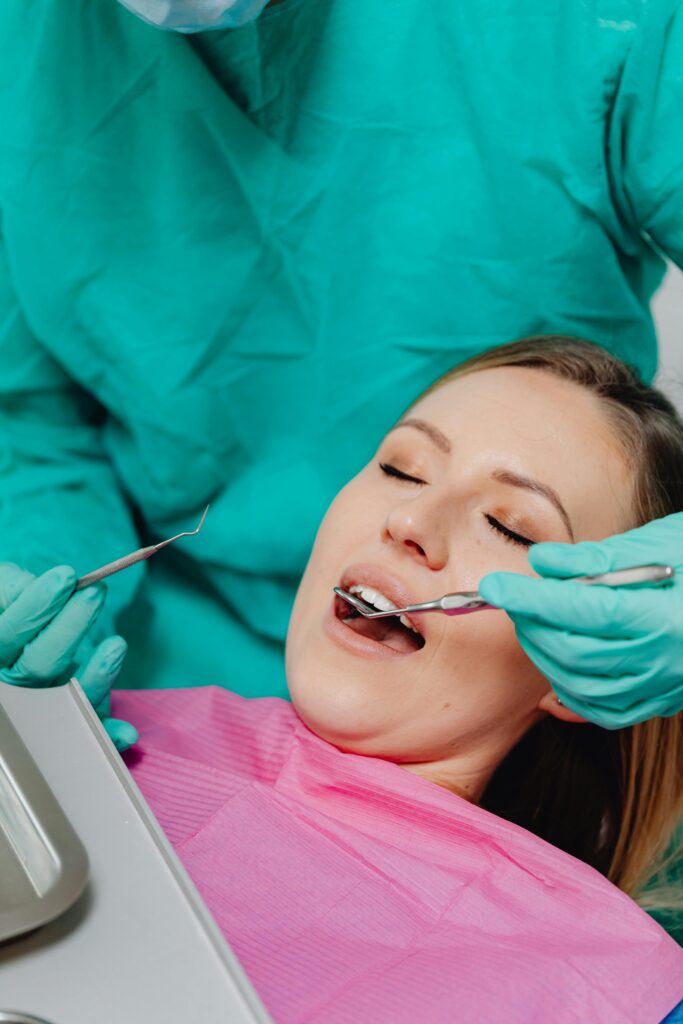Understanding Dental Health Challenges During Menopause
Menopause is a significant life stage for women, bringing about a variety of physical changes. While many women are aware of common menopause symptoms like hot flashes and mood swings, the impact of menopause on dental health is often overlooked. A staggering 84% of women over 50 are unaware of how menopause affects their oral health. This article provides essential menopause education, health tips, and dental advice to help women navigate the unique oral health challenges that can arise during this time.
The Impact of Hormone Changes on Oral Health
The primary driver of oral health problems during menopause is the fluctuation and decline of estrogen levels. These hormone changes can lead to a range of dental problems, affecting everything from your gums to your jawbone. Understanding these changes is the first step toward proactive dental care and maintaining good oral hygiene.
Common Dental Problems During Menopause
 Several specific dental issues can arise or be exacerbated during menopause. These include:
Several specific dental issues can arise or be exacerbated during menopause. These include:
- Dry Mouth: Reduced estrogen levels can cause a decrease in saliva production, leading to dry mouth. Saliva is crucial for washing away food particles and neutralizing acids that cause tooth decay. Consequently, a dry mouth increases the risk of cavities and other oral infections.
- Gum Disease and Bleeding Gums: Many women are surprised to learn about the strong link between menopause and gum disease. Hormonal changes can make gums more susceptible to inflammation and bleeding, a condition known as gingivitis. If left untreated, this can progress to more severe gum disease (periodontitis), which can damage the soft tissue and bone that support your teeth.
- Burning Mouth Syndrome: Some women experience a painful burning sensation in their mouth, a condition known as burning mouth syndrome. This can affect the tongue, gums, lips, and other areas of the mouth, and is often accompanied by a tingling or numb sensation.
- Reduced Jawbone Density: The drop in estrogen can also lead to a decrease in bone density throughout the body, including the jawbone. This can weaken the support for your teeth, potentially leading to tooth loss.
- Tooth Sensitivity: Receding gums, another common issue, can expose the roots of your teeth, leading to increased tooth sensitivity to hot, cold, sweet, or acidic foods and drinks.
Proactive Dental Care for Women’s Health
 Given the increased risks, prioritizing oral care during menopause is essential for overall women’s health. Here are some practical oral hygiene tips and health tips to help you maintain a healthy smile:
Given the increased risks, prioritizing oral care during menopause is essential for overall women’s health. Here are some practical oral hygiene tips and health tips to help you maintain a healthy smile:
- Maintain a Consistent Oral Hygiene Routine: Brush your teeth at least twice a day with fluoride toothpaste and floss daily. This is your first line of defense against cavities and gum disease.
- Stay Hydrated: Drink plenty of water throughout the day to combat dry mouth. Chewing sugar-free gum or sucking on sugar-free lozenges can also help stimulate saliva flow.
- Eat a Healthy Diet: A balanced diet rich in calcium and vitamin D is crucial for maintaining bone density, including your jawbone. Limit sugary and acidic foods and drinks that can contribute to tooth decay.
- Regular Dental Check-ups: Visit your dentist regularly for check-ups and cleanings. This allows your dentist to identify and address any potential dental problems early on. Don’t hesitate to discuss any menopause symptoms you’re experiencing with your dentist.
The Importance of Menopause Education and Communication
 There is a significant information gap when it comes to menopause and dental health. Many women struggle to find reliable resources, and a majority believe there should be more information available. Openly discussing these issues with your healthcare providers is crucial.
There is a significant information gap when it comes to menopause and dental health. Many women struggle to find reliable resources, and a majority believe there should be more information available. Openly discussing these issues with your healthcare providers is crucial.
As Sarah Chavarria, CEO of Delta Dental Insurance, states, “At Delta Dental, we believe that the impact of menopause on oral health should be an integral part of the broader dialogue, helping women maintain their well-being and holistic health during this life milestone.”
By arming yourself with knowledge and taking proactive steps, you can effectively manage the dental health challenges of menopause and maintain a healthy smile for years to come. Remember, your oral health is an integral part of your overall health and well-being, especially during this important life transition.
Listen on Podcast
Did you like your experience?
Please leave us a Testimonial HERE if you have a Google account.
Your word helps get our word out to more people.
Thank you in advance!!


